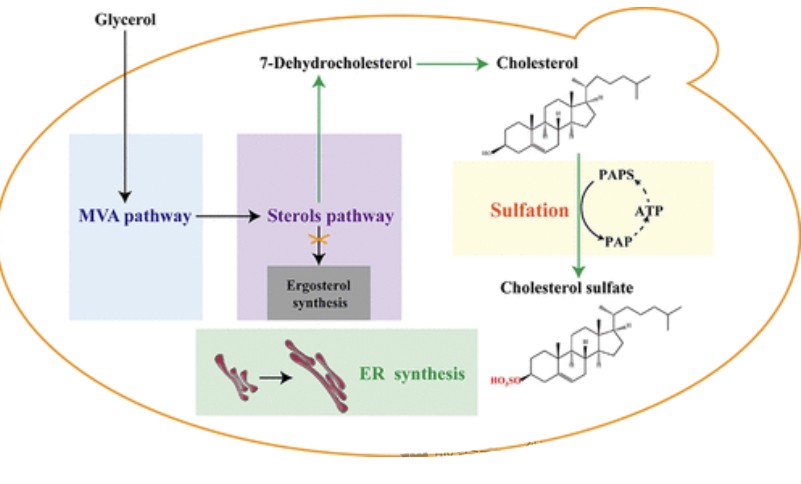What is CoQ10?
Coenzyme Q10 (CoQ10) is a compound found in the mitochondria of human cells that is essential for energy metabolism. As an antioxidant, it is able to fight free radical damage and has potential benefits in maintaining cardiovascular health.
Given its role in cardiovascular health, studies have explored whether CoQ10 can reduce the risk of developing Alzheimer’s disease (commonly known as dementia). Antioxidant properties help reduce oxidative stress and protect neurons from damage.
Working mechanism of coenzyme Q10
Coenzyme Q10 is involved in the cellular respiratory chain and plays a key role in the production of ATP.
Its antioxidant properties help reduce oxidative stress and protect neurons from damage.
Studies have shown that coQ10 may delay the progression of Alzheimer’s disease by reducing beta-amyloid deposition;
These findings are based mainly on animal models and preliminary human studies, and there is not yet enough evidence to support CoQ10 as an effective means of preventing or treating Alzheimer’s disease.
Get CoQ10 through your diet
Although there are several coQ10 supplements available on the market, natural food sources are also one of the important ways to obtain this substance.
Foods rich in CoQ10 include, but are not limited to:
- Animal viscera such as heart, liver, etc.
- Certain fish, especially deep-sea fish, and their oils.
- Nuts and seeds.
- Low content in a few vegetables and fruits.

It is important to note that although the above foods can provide a certain amount of coQ10, for certain groups of people (such as vegetarians), it may be difficult to obtain sufficient amounts from the daily diet.
Recommendations for coenzyme Q10 supplementation
For individuals considering the use of CoQ10 supplements to enhance their health, the following points are worth considering:
- Always consult a medical professional before starting any new supplemental program.
- Taking time best chosen after meals to improve absorption efficiency.
- Pay attention to the recommended dosage on the product label and follow the instructions exactly.
If it is to taken at all, general health maintenance: 30-200 mg per day usually recommended. Cardiovascular health: 100-300 mg per day may required. Coq10 usually taken with food to increase absorption.

Some fish, especially deep-sea fish, and their oils are rich in coQ10
Sum up
While available data suggest that CoQ10 may have some positive effects on maintaining brain function, it should not considered as the primary way to prevent or treat Alzheimer’s disease.
Factors such as maintaining a balanced diet, regular physical and mental exercise, and active management of chronic diseases are equally important.
If you belong to the high-risk group of Alzheimer’s disease, you should pay more attention to the overall lifestyle adjustment, and explore the appropriate health management strategy under the guidance of a professional doctor.





